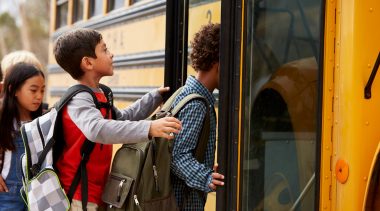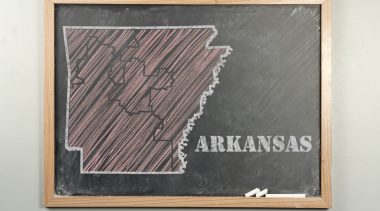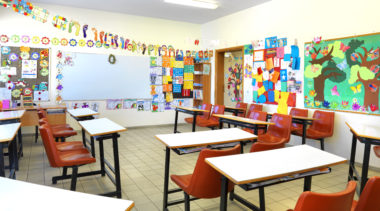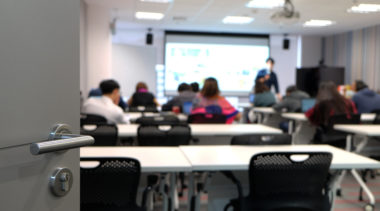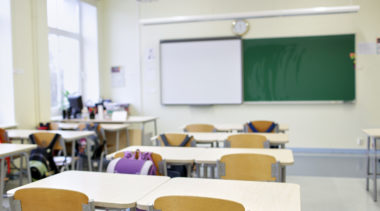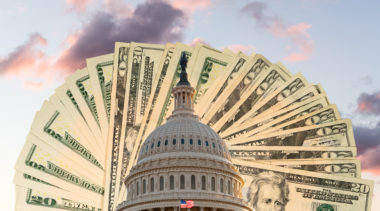Christian Barnard is assistant director of education reform at Reason Foundation.
Barnard's work includes research and analysis of state education and school district finance systems, with the goal of making them more equitable and innovative.
Barnard's writing has been featured in outlets including USA Today, Los Angeles Daily News, Washington Times, and The Hill, among others.
Barnard previously worked with the Foundation for Government Accountability, where he conducted research on labor policy and criminal justice. He also worked for the Pioneer Institute.
He holds a bachelor of arts degree in philosophy and economics from Messiah College.
-
A Better Way to Fund Students and Schools in Mississippi
The COVID-19 pandemic has demonstrated the need to update Mississippi’s K-12 education funding model, in particular the way that the state's school finance formula counts students.
-
Examining Legislation to Expand Open Enrollment in Arizona
Arizona lawmakers are looking to remove barriers preventing public school students from attending a school outside of their residentially assigned school district as well as more easily find transportation to their school of choice.
-
How to Improve Special Education Funding in Arkansas
Arkansas' education funding model creates disparities between the resources school districts receive and the actual needs of special education students.
-
The Problem with Arizona’s School Finance System
The state's education funds often favor school districts with more property wealth and less poverty.
-
Arizona School Finance Data Shows Large Funding Disparities Between School Districts
A new interactive data dashboard gives users the ability to compare Arizona school districts' per-pupil revenue against student demographics and property wealth.
-
Why Increasing Education Spending Might Not Boost Teacher Pay
The United States already spends more on public education per student than almost any other developed nation in the world but does not make the top of the lists for teachers’ salaries.
-
The Striking Achievement Disparities Between Boys and Girls in the Education System
The current pandemic-related adjustments could be providing significantly different learning environments in which many boys can thrive.
-
School Finance Systems Need to Fairly Accommodate Enrollment Trends, Not Ignore Them
Enrollment patterns play a big role in determining both school district operations and state education funding.
-
Teachers and Families Could Benefit From School Choice Reforms
School choice reforms could raise teacher pay, provide a check on top-down curriculum requirements and standardized testing, and give power back to educators and families.
-
“Nice White Parents” Podcast Series Highlights Real Public K-12 Failures—But Lets Government Off the Hook
While the podcast exposes concerning racial inequalities it fails to hold accountable the major culprits behind the unfair education system.
-
Three Things Policymakers Can Do to Improve School Finance Systems Right Now
There are practical and prudent steps policymakers can take to help schools support kids in the coming school year.
-
It Is Time to Fix Systemic Inequities in Education Funding
States and school systems must do away with the relationship between school funding and zip codes.
-
Economic Pain of COVID-19 Increases Need for School Finance Reform
Lawmakers need to embrace school finance reforms that boost equity and flexibility to ensure the looming economic pain is not being shouldered disproportionately by low-income students and communities.
-
How Michigan Can Avoid K-12 Budget Cuts Hurting the Highest-Need Students
Disadvantaged students — who are already the most vulnerable to economic uncertainty — shouldn’t also have to shoulder the most severe losses.
-
Three Ways to Ensure Education Funding Reaches the Students Who Need It Most
Three principles to guide education and stimulus spending during the coronavirus pandemic.
-
Evaluating the Effectiveness of the Federal K-12 Education Stimulus Spending of 2009
As the coronavirus pandemic continues and Congress considers another relief and stimulus bill, the lessons of past stimulus bills should inform spending and policy decisions.
-
The Economic Downturn Increases the Need to Reform School Finance Systems
Education has rapidly changed in the past two decades and school finance systems should be reformed to reflect these new dynamics.
-
What Will Happen to the Education System When the Coronavirus Pandemic Is Over?
While virtual learning may surge, hybrid models with in-person elements may work best.


